Why Is the Measure of Love Loss?
"When my mother was angry with me, which was often," writes Jeanette Winterson in her new memoir "Why Be Happy When You Could Be Normal?," "she said, 'The devil led us to the wrong crib.' "Jeanette Winterson's novels circle round the same themes—the power of story and mythmaking, the fluidity of gender, monstrous mothers and the loss of love.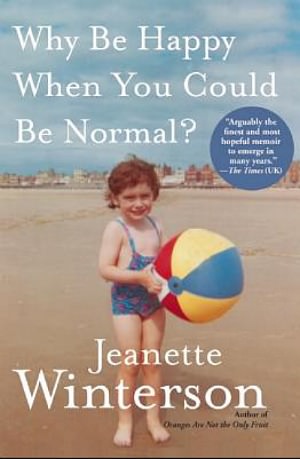
By Lauren B. Davis“Why Be Happy When You Could Be Normal?” A book by Jeanette Winterson
Jeanette Winterson’s novels circle round the same themes — the power of story and mythmaking, the fluidity of gender, monstrous mothers and the loss of love. Her pages are filled with references to the Bible and to fairy tales, and are often artfully disjointed. “Oranges Are Not the Only Fruit,” for which Winterson is rightly famous, was directly inspired by the author’s life. “Sexing the Cherry” is less overtly autobiographical but still contains some autobiographical elements, such as the echoes of Winterson’s mother in the giantess character, The Dog Woman, and of Winterson herself in Jordan, the orphan The Dog Woman rescues from the river. “Written on the Body” is a rage-filled cri de coeur against the betrayal and flimsiness of love. These themes return in her poignant memoir, “Why Be Happy When You Could Be Normal?,” as does the duality of Winterson’s work — fact and fiction, love and loss, male and female. “I know now,” she writes in her memoir, “that the finding/losing, forgetting/remembering, leaving/returning, never stops. The whole of life is about another chance, and while we are live, till the very end, there is always another chance.” Here is a terrible fragility, but a fire-forged strength as well.
The first section of the book deals with Winterson’s years as a child in Lancashire, England. She was adopted as a baby by a woman referred to throughout the book primarily as “Mrs. Winterson,” an evangelical Pentecostal Christian who hung a plaque with the words, “He Shall Melt Thy Bowels With Wax” in the outhouse. Winterson describes her mother this way:
“She was a flamboyant depressive; a woman who kept a revolver in the duster drawer, and the bullets in a tin of Pledge. A woman who stayed up all night baking cakes to avoid sleeping in the same bed as my father.”
If Winterson upset her mother, which she frequently did, Mrs. Winterson told her the devil had led her to the “wrong crib.” She should have adopted the other baby, a perfect little boy. She also detested books because, she said, “You never know what’s in a book until it’s too late.” (Frankly, I can’t think of a better way to make books irresistible.) She locked Winterson alternately in the coal cupboard and out on the stoop regardless of weather, regularly deprived her of food and had a violent exorcism performed on her daughter when Winterson fell in love with a girl. When Winterson refused to give up the girl she received an ultimatum from Mrs. Winterson and chose to leave home at 16. As she left she told her mother the girl made her happy. Her mother responded, “Why be happy when you could be normal?”
With just the sort of droll understatement Winterson does so well, she tells us Mrs. Winterson “did not have a soothing personality.” “Every day Mrs. Winterson prayed, ‘Lord, let me die.’ This was hard on me and my dad.” Even in so devastating a memoir as this, it is a testament to Winterson’s talent that I laughed out loud on a number of occasions.
This first section is familiar territory to those of us who read “Oranges Are Not the Only Fruit” when it was published in 1985. But, Winterson tells us here, “Oranges” was not as autobiographical as it might have appeared. Rather it was “the story I could live with at the time.”
“Mrs. Winterson objected to what I had put in, but it seemed to me that what I had left out was the story’s silent twin. There are so many things that we can’t say, because they are too painful. We hope that the things we can say will soothe the rest, or appease it in some way. Stories are compensatory. The world is unfair, unjust, unknowable, out of control. … When we write we offer the silence as much as the story. Words are the part of silence that can be spoken.”
Now, things have changed and this memoir is Winterson’s attempt to finally face her demons head on.
“[W]ounding seems to be a clue or a key to being human. There is value here as well as agony. What we notice in the stories is the nearness of the wound to the gift: the one who is wounded is marked out — literally and symbolically — by the wound.”
One of the discoveries she makes is that it was her monster of a mother who made her into a writer. The cadence of the King James version of the Bible, which her mother had steeped the household in, is the melody of much of Winterson’s prose, and she acknowledges this in the memoir. This is difficult for the reader to stomach, since Mrs. Winterson is so hard to love. One does not wish to credit her with anything. However, her very suppression of all passion and of books — she actually burns some she finds hidden in her daughter’s room — contributes to the author’s desire for them. Rather than bowing to her adoptive mother’s insistence on one essential apocalyptic biblical truth and nothing else, she learned to love words. “Fuck it, I can write my own,” is Winterson’s response to the book burning. The reader cheers for her.
Regardless, however, of how plucky and smart and strong Winterson is, a childhood like that leaves damage. She says, “When love is unreliable and you are a child, you assume that it is the nature of love — its quality — to be unreliable. … In the beginning the love you get is the love that sets.”
|
To see long excerpts from “Why Be Happy When You Could Be Normal?” at Google Books, click here. |
In the second half of the book Winterson turns her gaze onto the consequences of that unreliable, indeed toxic, love. After a 25 year gap, the memoir continues. The gap is a sort of elephant in the room, and one wonders whether Winterson simply isn’t ready yet to look at those years under the same bright light as those on which she has concentrated. She does tell us that the search for love has been a lifelong preoccupation. (She does not, however, mention Pat Kavanagh on whom “The Passion” is purportedly based.) She picks up the thread when she endures a devastating romantic breakup with theater director Deborah Warner, and traces the resultant suicidal breakdown, which leads her to find her birth mother.
She says, with characteristic bluntness:
“In February 2008 I tried to end my life. My cat was in the garage with me. I did not know that when I sealed the doors and turned on the engine. My cat was scratching my face, scratching my face, scratching my face.”
The second half of the book is less linear than the first; the prose is more fragmented and urgent. This may be a reflective function of the subject matter — that of mental breakdown. It is powerful and visceral and the reader genuinely fears for the author. Winterson discovers, with the help of analysis, what she calls a “savage lunatic” living inside her.
“This is the most dangerous work you can do. It is like bomb disposal but you are the bomb. That’s the problem — the awful thing is you. It may be split off and living malevolently at the bottom of the garden, but it is sharing your blood and eating your food. Mess this up, and you will go down with the creature.”
The passages in which she argues with “the creature” during her afternoon walks are very fine indeed.
At the end of the book, Winterson is in a good relationship with Susie Orbach, the psychoanalyst, and with her help finds, at last, her birth mother. One hopes for a happy ending here, but of course life is messy and complicated. The meeting may have helped heal Winterson in some ways, but it is no cure-all. Finally, however, the reader gets the impression that even though Winterson may never be utterly free of the demons, she will be able to live in relative comfort with them.
It is astonishing not only that Winterson can face her life with such clarity, but that she can turn the events of her life into something much broader than most memoirs. However, Winterson has always mixed whatever story she’s telling with myths and fables so they become much larger than what is on the page.
“Personal stories work for other people when those stories become both paradigms and parables. The intensity of a story — say the story in “Oranges” — releases into a bigger space than the one it occupied in time and place. The story crosses the threshold from my world into yours. We meet each other on the steps of the story.”
It should come as no surprise that she’s done the same with this book. Interspersed are delightful mini-essays on gender politics, socialism, education, politics, Margaret Thatcher and, of course, literature. Winterson’s salvation came from books and she wants to share them with the reader.
“I believe in fiction and the power of stories because that way we speak in tongues. We are not silenced. All of us, when in deep trauma, find we hesitate, we stammer; there are long pauses in our speech. The thing is stuck. We get our language back through the language of others. We can turn to the poem. We can open the book. Somebody has been there for us and deep-dived the words.”
The memoir is peppered with digressions about various books and it’s quite inspiring, for above all else this is a writer’s memoir; bravely written, it explores brokenness and strength, abandonment, abuse and learning (hopefully) to love and be loved. Most of all, it shows how her life contributed to Winterson becoming the sort of writer she is. And thank God for that.
Lauren B. Davis is the author of five books, most recently, “Our Daily Bread.” Like Jeanette Winterson, she was adopted as a baby by a mentally ill woman, was never allowed a key to the house, left home at 16 and eventually met her birth mother, with similar results.
Your support matters…Independent journalism is under threat and overshadowed by heavily funded mainstream media.
You can help level the playing field. Become a member.
Your tax-deductible contribution keeps us digging beneath the headlines to give you thought-provoking, investigative reporting and analysis that unearths what's really happening- without compromise.
Give today to support our courageous, independent journalists.

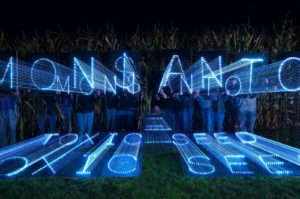
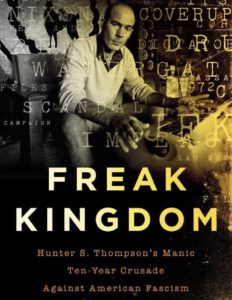
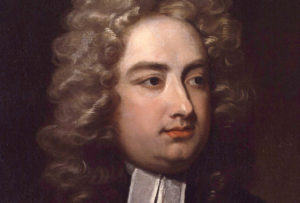
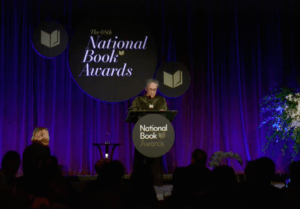
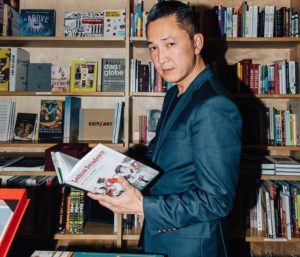
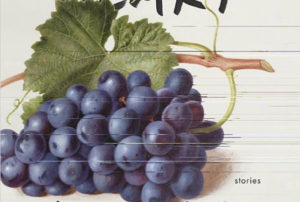
You need to be a supporter to comment.
There are currently no responses to this article.
Be the first to respond.